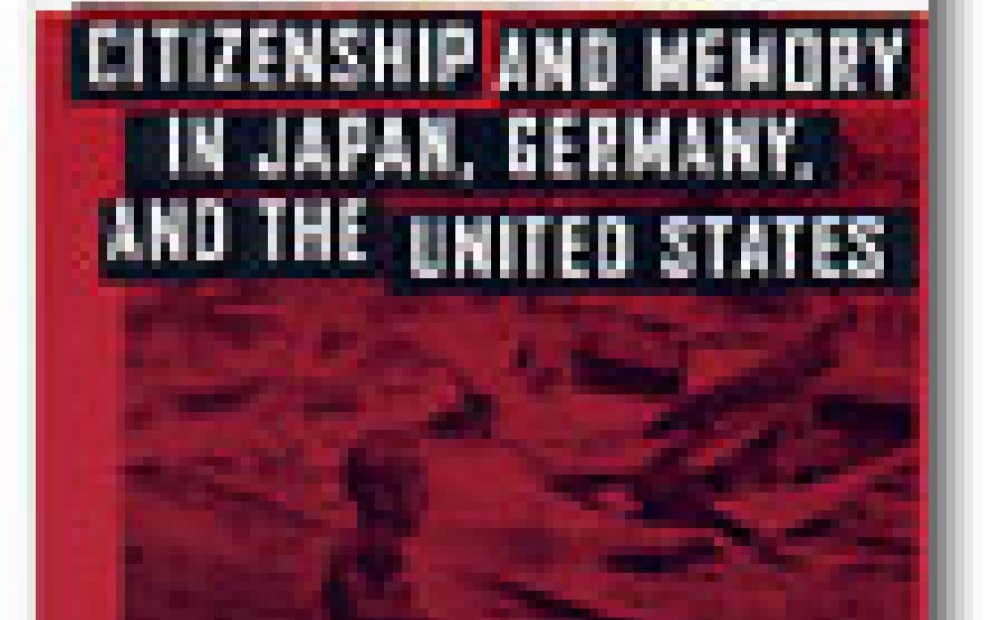Historian Cites Textbooks as Key Front in Battles over Citizenship and Memory

By Alexei Kral
Laura Hein, Woodrow Wilson Center Fellow, Associate Professor of History, Northwestern University, and co-editor of Censoring History: Citizenship and Memory in Japan, Germany, and the United States.
Louise Young, Assistant Professor of Japanese History, New York University.
"Textbook controversies reveal one important way that societies negotiate, institutionalize, and renegotiate nationalist narratives," historian Laura Hein told scholars, journalists, and diplomats at a Woodrow Wilson Center seminar. Analyzing controversies over Japanese, German, and American high school textbook coverage of recent wars, Hein discussed her recently published book, Censoring History: Citizenship and Memory in Japan, Germany, and the United States. Textbooks, she pointed out, present an "official" story that shapes patriotism, and are a prime medium for the transmission of ideas about citizenship as well as visions of both the idealized past and the promised future. Thus, teaching about discredited wars is especially problematic because it raises deeply divisive questions.
In the German case, Hein observed, the education system has been committed, since the 1960s, to a very self-critical stance in teaching about the Holocaust. Germans recognized they had to condemn the nationalist past in order to achieve integration with the European Union and to guarantee a just and democratic society. German educators now use repudiation of the Holocaust as a central means to teach respect for religious and ethnic minorities. And education officials have responded to international criticism with textbook revisions. But texts are still problematic, Hein declared, because "the most sensitive lesson of the war does not concern the plight of Germany's victims so much as the complicity of the general population in their victimization." According to some Germans, rewriting textbooks therefore requires changing the definition of a good German citizen and the citizen's relation to the state.
Similarly, Hein noted, textbooks in Japan have caused international and domestic controversy from the end of World War II up to the present day. However, American perceptions of Japanese textbooks are "a decade out of date," she suggested. Beginning in the early 1980s, Japan's neighbors exerted diplomatic pressure for changes in textbook portrayals of World War II and Japanese colonialism. Today, Hein affirmed, Japanese high school texts cover the Nanjing Massacre, the "comfort women" (Asian women enslaved and forced to provide sex by the Japanese military), and colonial policies, albeit avoiding "uncomfortable evaluation" of that history. Domestic debate erupted in 1997 as Rightist groups criticized the textbook changes. These critics were particularly incensed by the inclusion of the "comfort women," and called for more positive views of Japanese history and society. Hein, however, endorsed studying about the "comfort women," arguing it forces citizens to "reexamine their own relationship to the state, gender relations among citizens, and relations between Japan and Asia."
Textbooks are a "battleground for competing visions of gender, race, and class" in the United States too, Hein stated. Pressure from minorities and women's groups has led to textbook coverage of their contributions during World War II. Indeed, it was only in the 1970s that textbooks began to criticize the internment of Japanese-Americans during WWII, Hein recounted. This case shows the changing relationship of textbook content and policy, as the consensus in textbooks criticizing the internment preceded the U.S. government's 1987 apology and financial reparations. Since then, focusing on the act of redress, textbooks now cover this dark part of American history in a positive light as an injustice finally corrected. The Vietnam War, on the other hand, is still "treated very gingerly," according to Hein. Skirting sensitive issues like the My Lai massacre, the texts focus on the domestic implications of the war. In part this is because Americans are insulated from foreign criticism - to a degree unimaginable in Germany or Japan.
Historian Louise Young praised Hein's book for identifying the deeper issues behind the heated textbook debates. She highlighted Hein's inclusion of American textbook depictions of the Vietnam War - an approach that challenges the inherent self-righteousness in the common assumption that Japanese are still unusually recalcitrant in facing their past. Operating at the nexus of history and memory, textbooks help to script national identity, Young asserted.
The comparative perspective, looking at textbooks and textbook controversies in Japan, Germany, and the United States, allowed dispassionate analysis - something that would have been more difficult if the focus were on just one of those countries. Historical memory, textbooks, and citizenship may not be on the immediate policy agenda in Japan, Germany, or the United States today, but these contentious issues underlie important ongoing debates, and reflect how people view their nation's place in the world. Awareness of these debates provides the context for viewing and understanding both current and future policymaking in Japan, Germany, and the United States.
Hosted By

Indo-Pacific Program
The Indo-Pacific Program promotes policy debate and intellectual discussions on US interests in the Asia-Pacific as well as political, economic, security, and social issues relating to the world’s most populous and economically dynamic region. Read more
